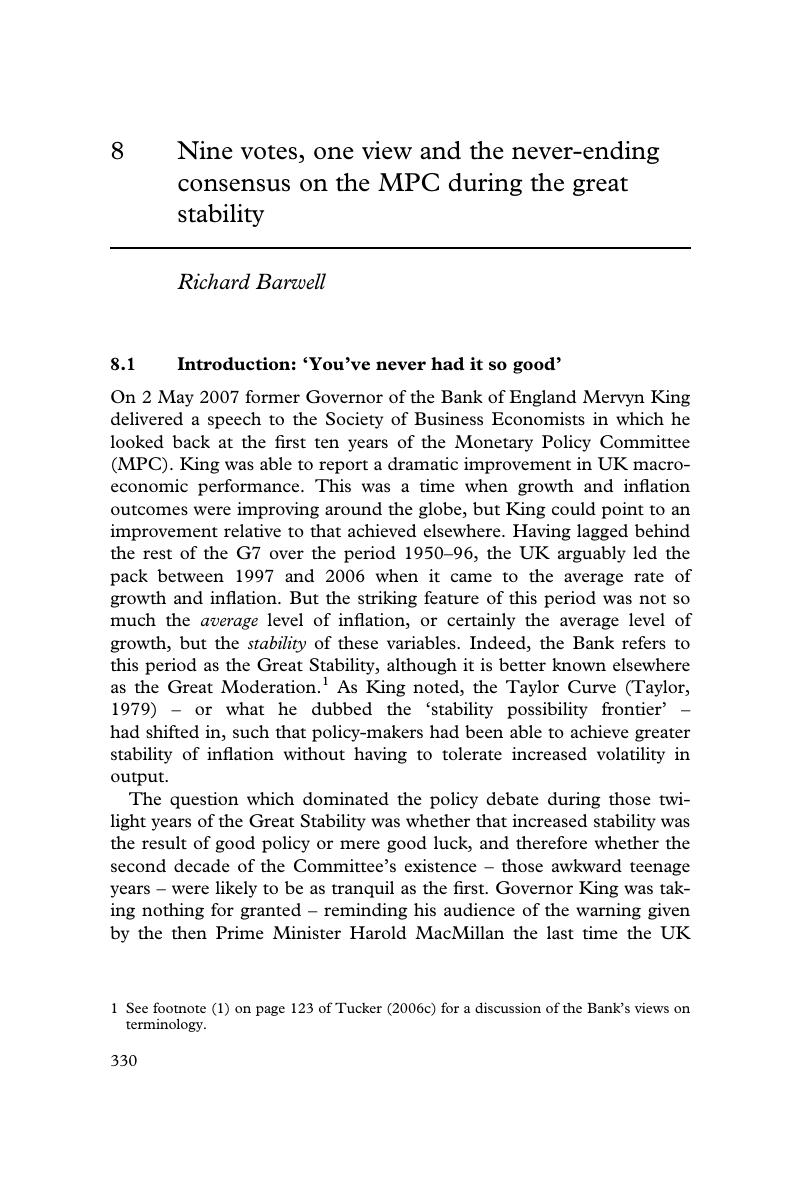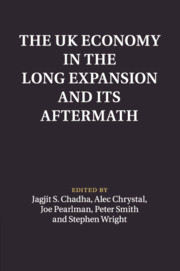Book contents
- The UK Economy in the Long Expansion and its Aftermath
- Macroeconomic Policy Making
- The UK Economy in the Long Expansion and its Aftermath
- Copyright page
- Contents
- Figures
- Tables
- Contributors
- Preface
- Introduction
- 1 Prospects for UK growth in the aftermath of the financial crisis
- 2 Labour market and monetary policy reforms in the UK: a structural interpretation of the implications
- 3 Property income and the balance of payments
- 4 UK broad money growth in the Long Expansion 1992–2007: what can it tell us about the role of money?
- 5 An old fashioned banking crisis: credit growth and loan losses in the UK 1997–2012
- 6 Household debt and spending in the United Kingdom
- 7 MPC decision-making, the Long Expansion and the crisis: integration with the global economy, heterogeneity and network dynamics
- 8 Nine votes, one view and the never-ending consensus on the MPC during the great stability
- 9 Emerging markets and import prices during the Long Expansion
- 10 UK fiscal policy before the crisis
- Index
- References
8 - Nine votes, one view and the never-ending consensus on the MPC during the great stability
Published online by Cambridge University Press: 05 June 2016
- The UK Economy in the Long Expansion and its Aftermath
- Macroeconomic Policy Making
- The UK Economy in the Long Expansion and its Aftermath
- Copyright page
- Contents
- Figures
- Tables
- Contributors
- Preface
- Introduction
- 1 Prospects for UK growth in the aftermath of the financial crisis
- 2 Labour market and monetary policy reforms in the UK: a structural interpretation of the implications
- 3 Property income and the balance of payments
- 4 UK broad money growth in the Long Expansion 1992–2007: what can it tell us about the role of money?
- 5 An old fashioned banking crisis: credit growth and loan losses in the UK 1997–2012
- 6 Household debt and spending in the United Kingdom
- 7 MPC decision-making, the Long Expansion and the crisis: integration with the global economy, heterogeneity and network dynamics
- 8 Nine votes, one view and the never-ending consensus on the MPC during the great stability
- 9 Emerging markets and import prices during the Long Expansion
- 10 UK fiscal policy before the crisis
- Index
- References
Summary

- Type
- Chapter
- Information
- The UK Economy in the Long Expansion and its Aftermath , pp. 330 - 396Publisher: Cambridge University PressPrint publication year: 2016
References
Select Bibliography
- 1
- Cited by

